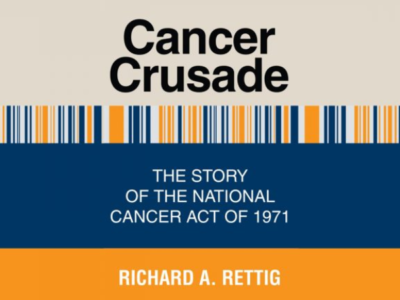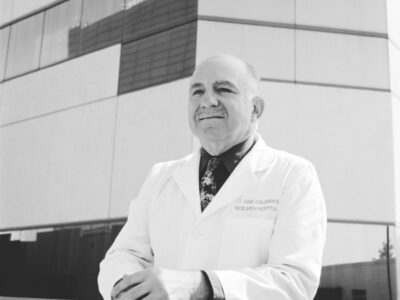AccessHope and Johns Hopkins Medicine have partnered to increase access to oncology expertise and research to optimize cancer treatment plans across the U.S. through expert case reviews.
In addition to publishing out-of-print books in oncology, the Cancer History Project highlights new books on the history of the field.
Richard A. Rettig’s “Cancer Crusade: The Story of the National Cancer Act of 1971” is a peerless book, a comprehensive history of the buildup to and enactment of the landmark law that focused the U.S. government’s efforts to cure cancer.
A novel blood testing technology being developed by researchers at the Johns Hopkins Kimmel Cancer Center that combines genome-wide sequencing of single molecules of DNA shed from tumors and machine learning may allow earlier detection of lung and other cancers.
The Cancer History Project’s mission includes publishing books that tell the story of oncology and the shaping of its culture.
Susan Love, breast oncologist, founder of the breast cancer advocacy movement, and chief visionary officer of the Dr. Susan Love Foundation for Breast Cancer Research, died July 2.
Radiation oncologist William Blackstock died from his long battle with prostate cancer June 18. He was 60.
Bill Nelson, director of Johns Hopkins Kimmel Cancer Center, is conducting a series of interviews commemorating the cancer center’s 50th anniversary.
Johns Hopkins Medicine received a $35 million gift from researcher, philanthropist, and race car driver Theodore Giovanis. Scientists will use the gift to study how cancer metastasizes through the body.
SpaceMarkers, a machine learning software developed by researchers at the Johns Hopkins Convergence Institute and the Johns Hopkins Kimmel Cancer Center, can identify molecular interactions among distinct types of cells in and around a tumor, according to a study published in Cell Systems.











